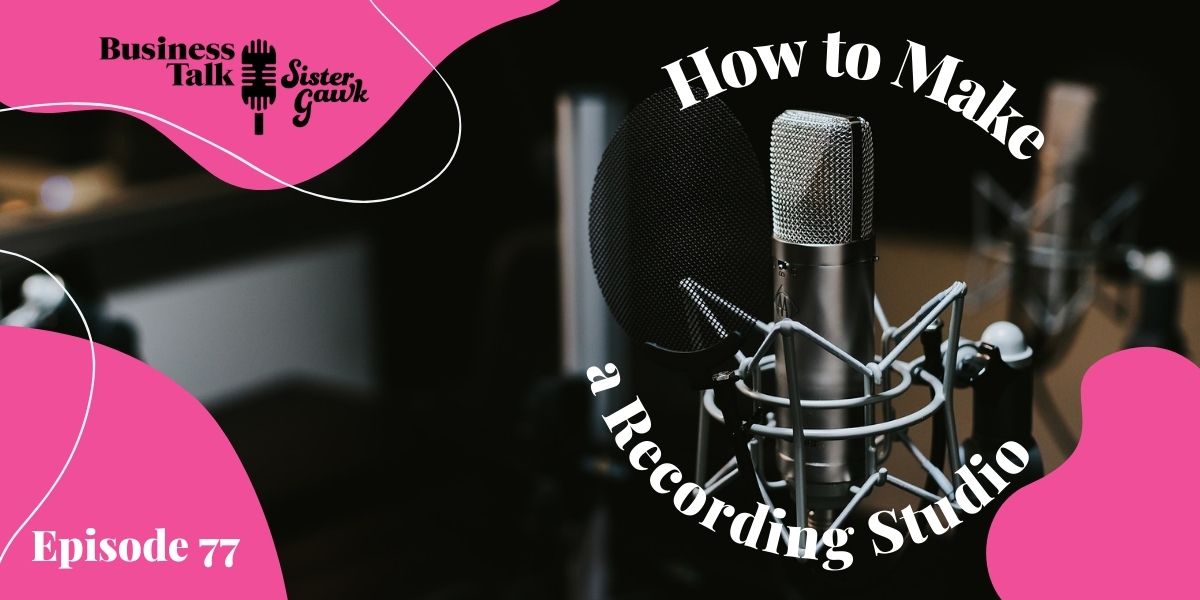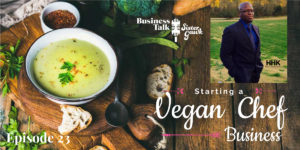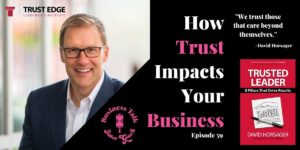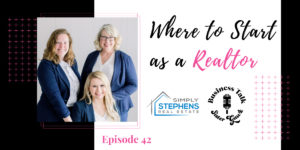This week, we start talking about monetizing a recording studio with Max Haben from Framework Studio about how he started a flex space that offers booking times in a recording studio. This is a great listen for anyone who is interested in starting a recording studio and looking for different ways to monetize it.
Max: It’s great to be here, Bekkah and Ruthie! Thanks for having me!
Ruthie: Yeah!
What Is Your Business?
Bekkah: Yeah so our first question for you is what do you do?
Max: Well, that is somewhat of a complicated question but not too complicated. Really what I do is I’m a content marketer/content producer. I work for a company called J&RS. We are a start to finish construction company and I’ve been working with them for about a year and a half and in the process of working with J&RS I have also had the opportunity to open up a production studio. I’m also starting up a business and running a production studio that’s sort of tied to J&RS and what I’m doing with them. It’s all kind of integrated but got a couple different things going on which is really exciting!
Ruthie: Awesome! Okay! So when I talked with you when I first met you, you kind of told me a little bit about the “why” of like meeting a specific need for your industry so tell us a little bit more about the story behind your why.
Max: Yes, so in regards to Framework Studio which we’re in the process of opening up. A lot of the work I did with J&RS over the last year was based around content production. I have a video background. I’m a filmmaker by trade and so I’ve sort of stumbled into the marketing world and don’t have a lot of background actually or kind of traditional marketing training or experience.
But I’ve really just brought my video content production and my storytelling background into this marketing role and what I found with that is that there’s a big need for content production for a lot of companies out there. I’ve been working for a construction company and particularly in the trades a lot of these kind of old school trades companies aren’t doing a lot of marketing but there’s really great opportunity for them to do content and to do video content, social media, podcasting, and so we’ve started to do that with J&RS.
Then we saw a need for other companies to do that as well and so we’re going to be working with some other companies to help them with their content production. But then we also created this studio space as really just a collaborative place for anybody who is looking to create content. So we hope that for kind of the local market here in Duluth it can be a place for people to come together and connect and create content.
Bekkah: Yeah, so Ruthie was telling me a little bit about your studio because she got to look at it but –
Ruthie: It’s beautiful!
Max: Thank you!
Ruthie: So modern and gorgeous!
How Did You Plan to Create a Recording Studio Business?
Bekkah: Tell me a little bit about what went into the design of it and when you said, “This is what I want to do. I want to create a place for people to come and make content.” What was the planning like for that?
Max:That’s a great question. You know, I’m very much a visionary person and I’ve discovered that about myself is I am a big vision person. I get gut feelings. I get intuition but a lot of times I do not see the specifics of what that path is going to entail. This was like that in every single way.
We bought this new building for our design showroom of all things and we had this extra tenant space and I walked through it. It used to be the old eco-lab building so it was like a laboratory and it had tall ceilings and it was very just square and modular and I was like, “ this would make a really cool recording studio and like production studio for our content.” I kind of just threw that idea out there and our ownership went for it. They’re very innovative, very open-minded sort of progressive leadership team.
They’re all about it and so we just kind of started! You know we’re a construction company so we had the resources to build it which was really nice and efficient. Then there was also this other sort of just open space that we turned into sort of an open co-working space kind of like a flex space.
That’s also a part of the studio is there’s like an open office with a coffee bar and a pull-up glass, garage door in a private conference room. It’s very hip. We put our kind of modern style touch on it and it really has turned out even better than I could have imagined. So for me that’s kind of my approach. I’m a visionary. I get sort of the feeling of what something could be or the direction it could go and then I really have to be working with people who can execute and who are tactical and can help bring that vision to life otherwise I’m pretty good for nothing.
Ruthie: Yeah, we know that storyline very well. Bekkah is very visionary and is always thinking forward and like, “Oh!” She texts me at two in the morning like, “I had this idea!” and we always joke about how Bekkah is the trailblazer and I’m the brush cleaner. I like to come behind and just –
Max: That’s a great analogy!
Ruthie: Make it look pretty!
Max: I love that!
Bekkah: Yeah! She makes it a little bit more smooth for everybody!
Max: You need both!
How Did You Create The Pricing Structure For a Recording Studio Business?
Ruthie: Yeah we’re a good team that way. Tell us a little bit about the kind of the structure of how you have things set up for your –
Bekkah: Space usage.
Ruthie: Yeah, like specifically with like how can people come and rent space and what does the pricing structure look like and things like that?
Max: Yeah, so right out of the gate you can pay $175 a month to become a member of Framework Studio. What that gets you is access to our open space. Which is roughly, I don’t know a thousand to fifteen hundred square feet of just open sort of co-working space. There are tables, coffee tables, couches, lounge chairs, and then a coffee bar with free coffee. We actually have a really nice, coffee machine and we provide locally roasted coffee from a roaster in Two Harbors.
It feels kind of like an open coffee shop. It’s just a great vibe and then along with that we have options too. Like I said we have a private conference room so you can kind of just à la carte. If you need to hop into the private conference room to have a team meeting to meet with a client you just wants some privacy, you can rent that out by the hour for I believe if you remember it’s 20 bucks an hour. Then we also have an exercise room in the middle of the building that’s open to the entire building.
There are three tenants total but Framework members also get access to that communal kind of workout area and you can again add on to your membership for access to that. Then of course the co-shared studio space which is about a 400 square foot production studio, sound dampened. and all the production equipment is available for use as well that’s in the studio. We have lights and stands and cameras and audio equipment as well so that’s kind of all the amenities.
There’s free parking, free wi-fi, obviously. I mentioned the free parking because that seems to be what gets most people is they’re really excited about the free parking. A lot of people are downtown working and that can be a pain so we have that as well.
What Market Research Did You Do For Pricing Your Recording Studio?
Bekkah: Yeah so I know you kind of highlighted all those value pieces, but crack that open for me in terms of how did you do your market research to say this is a good price point. Are there any people in your area that you were comparing yourself against or how did you go about getting to those numbers of value?
Max: Yeah, we did a little bit of market research on our own to see what you know there really aren’t a lot of spaces like this. There are some kind of co-sharing –
Bekkah: I would agree!
Max: Yeah, there are some around and there’s some of that happening but you know so we kind of looked at those prices but then we also feel like we’re offering a bit of a premium product. Which you know $175 a month we actually open that up as sort of a promotional pricing to try to get people in the door right away. We do feel like we’re going to raise that price over time because we do feel like we’re offering just a better product than what’s out there, but we did also work with some students at UMD.
We actually worked through kind of like a student program. We got approached by a marketing professor and he has one of his classes do student projects every year for a couple local businesses. So we actually had a few teams of students working on our behalf to do some market research for us and they kind of came up with a lot of numbers and threw some things out there for us to consider which was really helpful. So to be honest it’s a little bit of an unknown territory too for us. I’m not going to act like this is like a exact science.
We really made some – the $175 a month we really feel like that’s like an amazing sort of affordable option for people maybe they have an office space or they’re working remotely now after COVID. A lot more people are working from home and more than even just like a nine to five workspace they just need a flex space that they can go and hop into one or two days a week just a change of scenery.
We’ve actually had some small companies come and just use our conference room just to get out of their current space. Just to kind of get away and just kind of a different environment and so I think even more than a co-working space which is what we originally planned to be I think that word “flex space” is actually a better description of what it is because we really see it being more of a supplement probably for most people than like a nine to five come, lockdown, and work here all day kind of thing.
What Additional Services Does Your Recording Studio Offer?
Ruthie: I know when I talked with one of the owners when I was at your guys’s location he had kind of mentioned some of the production side. Talk to me a little bit about that. Is that something that you guys are getting into like doing the actual production for people and giving them a finished product or are you just providing the space for people to come in and do their own work?
Max: It’s kind of like everything’s on the table at this point. We want this to be a place that anybody can use and kind of wherever you’re at with what your needs are we want to be able to help with that. If you just need a space to come and record your content, do your photoshoot, record your podcast, whatever it might be it’s available for that. Then we’re also opening up this opportunity to partner with other businesses who actually want help with pre-production, production, and post-production on their content.
We really feel like this podcasting world is blowing up. A lot of people are seeing the opportunity there. You guys would be the first to acknowledge that! It’s just a great opportunity for I think any business to start to do kind of a different type of marketing and start to create relationships with clients in a way that’s really unique and really impactful. We want to be able to help other companies to take advantage of that opportunity as well! So we are! We’re kind of doing all the above right now.
We have a couple clients on board that we’re starting podcasts for. We’ve been having some kind of one-off non-members coming in to use the space and we’ve got four or five memberships signed up for the monthly leases so we’re just kind of rolling with it and then we’ll see if that narrows as far as our focus but right now we’re just trying to kind of see what the need is and go with it.
How Did You Pick Recording Studio Equipment For Your Business?
Bekkah: Yeah, so when you guys first started out how did you decide – because I know there’s such a price range in terms of technology for podcasting and sound dampening and all of that – what was kind of the things that you said, “These we could maybe go lighter on but this is what is most valuable to invest in to make sure these things are done well”?
Max: Yeah that’s a good question. I think the soundproofing was one big area we felt like would be important. That was actually some feedback we got early on even before we started building was I talked to a couple local businesses and just entrepreneurs that I know around town who were who are doing you know kind of podcast and audio stuff and recording.
They mentioned that if they could have a place where they can go and it’s just soundproof and they know they’re going to be able to get good audio that that was really important. So that was definitely something we prioritized and then the studio we wanted it to be you know somewhat of a blank slate. We wanted to be something that people could come into and create. If they want to use what’s here already and the aesthetic that’s here, that’s great.
Also we wanted it to be something that people could create their own environment, put up decorations or their brand colors or whatever in order to kind of just have a blank canvas to work with. I went with the black walls. Being a filmmaker, my background is in cinematography and I really like the way that the black walls sort of soak in some of the light. But there’s always the option to bring in white backdrops if you want to. I just personally really like the all black sort of feel.
Ruthie: Yeah, that’s so cool! It does look so professional and like you said like that blank slate you could just do anything with it and I think that that’s really fun that you guys went with that!
How Do You Budget For Equipment Upgrades in a Recording Studio?
Max: Yeah.
Ruthie: So how do you guys just kind of looking forward in that visionary mindset how do you kind of budget for technology upgrades or like things that you want to do moving forward?
Max: Yeah, I try to get as much help as possible because I think going back to that visionary personality type I’m always sort of putting one foot forward before I think about some of the practical details like that –
Ruthie: Or what the phone is landing on.
Max: Right! Exactly! Yeah like are we going to have somewhere to walk? Luckily we’ve been able to carry over a lot of our resources from J&RS. Last year we invested. I came out as the marketing director and there really wasn’t a marketing department before that. So I had a budget to work with and bought some equipment. With my background and film and photography I knew exactly what we needed and I’ve gotten really good at being efficient with how we can get the best quality of production equipment at the best price.
I like to really, personally, I think it’s all relative as far as how much money you spend but I think you work with the tools that you have and if you’re a creative person, if you’re an artist, if you’re someone who has a vision then you’re going to make something good whether you’re using your phone or you’re using a $30,000 camera and that’s something I’ve experienced over my career many times.
A lot of the best things I’ve ever created and the most impactful content has just been using the tools that I have around me and oftentimes embracing the limitations that I’m kind of forced to use and create within. We’ve got a good set of equipment to get started with but I think anybody can come in here and get up and running and create something awesome right off the bat. We try to just use the resources we have and be smart but at the same time being as efficient as possible too.
What Resources Should a Recording Studio Business Know About?
Ruthie: We always ask our guests what free tips or resources would you recommend to someone who wanted to try out something like this. Is there any specific like youtube videos or books or anything that you used in your process to start up this recording studio?
Max: I don’t have anything as far as starting a studio particularly as far as books or free resources. Youtube is my best friend. Absolutely. I couldn’t point you to one specific video but I mean you Google or Youtube “how to create a studio” “how to set up a photography studio” whatever it might be. I mean there’s so many good tutorials out there! I will say one great resource does come to mind. They’re called Think Media. They’re all about they do all sorts of type of content. But they they do a lot of gear reviews. They do a lot of like setups and kind of how to create content and whatnot. I would definitely check them out. They do really helpful, valuable content.
Bekkah: How do people find you?
Ruthie: Yeah!
Max: Yeah so personally I’m on LinkedIn. I’ve been really going all in on LinkedIn lately. I don’t personally have as much presence on other platforms anymore but business-wise Framework Studio. Framework Studio – sorry frameworkduluth.com is our URL for our website. We just got that up and running and then –
Bekkah: We’re really catching you at the beginning of this! Like this is very new
Max: I’m still like remembering my URL and then the same thing for Instagram. It’s @framework.duluth so we’re starting out on Instagram that’s where we’re the most present. I would say.
Ruthie: Awesome!
If you enjoyed this episode as much as we did, you’re going to want to share it with a friend on Spotify it’s #77!




